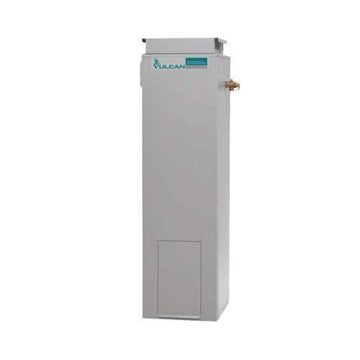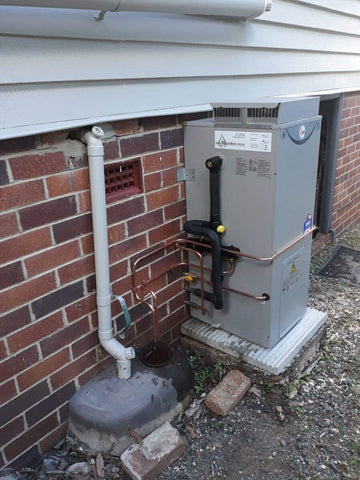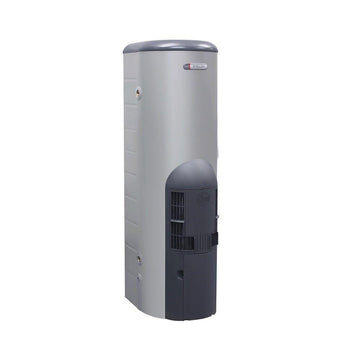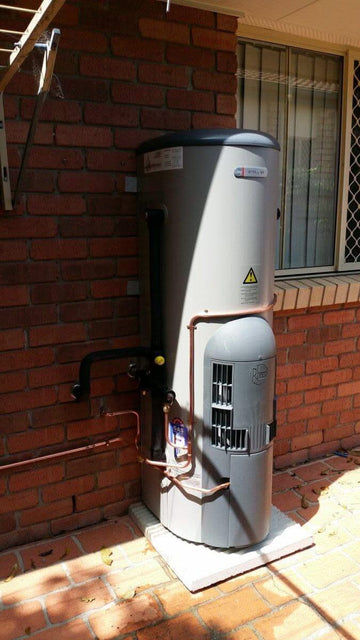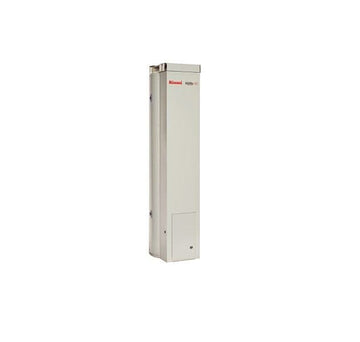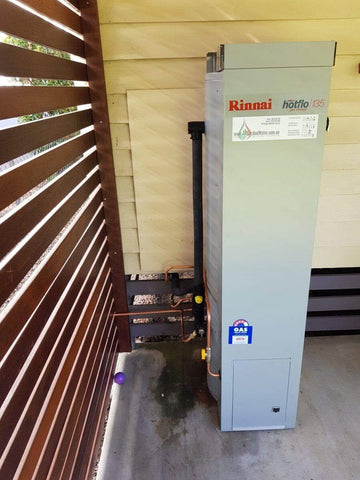Gas Hot Water System Guide: Best Storage & Instant Models in 2024
🔥 Find the Best Gas Hot Water System for Your Home & Cut Energy Costs!
A gas hot water system is one of the most reliable and energy-efficient ways to provide continuous hot water for your home. Whether you're looking for a high-capacity gas storage system or an instantaneous (tankless) gas hot water system, choosing the right model can save you money on gas bills and ensure consistent water heating.
In this expert guide, we’ll cover:
✅ Storage vs. Instantaneous gas hot water systems – Which one suits your home best?
✅ Best brands & models – Rinnai, Bosch, and Rheem reviewed
✅ Energy efficiency & cost savings – How to reduce gas usage and lower bills
✅ Installation & maintenance tips – Maximize performance & lifespan
✅ Costs & rebates – Find out what incentives are available
💧 Need a gas hot water system installed today? Get a free quote from JR Gas & Water now!
What Is a Gas Hot Water System?
A gas hot water system uses a gas burner to heat water efficiently, providing a continuous and reliable supply. There are two main types:
🔹 Gas Storage Hot Water Systems – Heat and store water in an insulated tank for later use.
🔹 Instantaneous (Tankless) Gas Hot Water Systems – Heat water only when needed, eliminating standby heat loss.
These systems are ideal for large households, off-grid homes, and businesses looking for low-cost, high-efficiency hot water solutions.
Storage vs. Instantaneous Gas Hot Water Systems
Gas Storage Hot Water Systems (HWS)
✔ Best for: Large families with high water usage
✔ Tank sizes: 135L – 360L
✔ Recovery rate: Can reheat a 170L tank in 1 hour
✔ Energy rating: 5-6 stars
✔ Disadvantages: Heat loss if water is unused
💡 Ideal for: Homes needing large amounts of stored hot water at any time.
Instantaneous (Tankless) Gas Hot Water Systems
✔ Best for: Small homes, apartments, or energy-conscious users
✔ Water delivery: Instant hot water on demand
✔ Energy rating: 6+ stars
✔ Compact design: Space-saving, wall-mounted units
✔ Disadvantages: May require higher gas flow rates
💡 Ideal for: Households wanting continuous hot water without a storage tank.
How to Choose the Right Gas Hot Water System
To select the best gas hot water system for your home, consider:
🏡 Household Size: More people = larger tank or higher flow rate needed.
🚿 Hot Water Usage: Frequent simultaneous showers? Go for a bigger tank or high-flow model.
📏 Available Space: Compact instantaneous models fit small spaces, while storage units need more room.
💰 Running Costs: Higher energy star ratings = lower long-term costs.
✅ Tip: For homes with 4+ people, a 170L+ storage tank or 26L/min flow rate tankless unit is ideal.
Best Gas Hot Water System Brands & Models in 2024
🔥 1. Rinnai B26 Continuous Flow Hot Water System
✔ Best for: Medium-sized homes (2-4 people)
✔ Flow Rate: 26L/min
✔ Energy Rating: 6+ stars
✔ Key Feature: High-efficiency heat exchanger
💡 Why Choose It? Compact, reliable, and energy-efficient for small to medium households.
🔥 2. Bosch HydroPower Gas Hot Water System
✔ Best for: Off-grid homes (no electricity required)
✔ Water Delivery: Instant hot water
✔ Key Feature: Hydro-powered ignition (no pilot light)
💡 Why Choose It? Ideal for homes with low gas pressure or no mains electricity.
🔥 3. Rheem Stellar 360 Gas Storage Hot Water System
✔ Best for: Large families (5+ people)
✔ Capacity: 360L
✔ Energy Rating: 5-star
✔ Key Feature: Fast recovery – 200L in just 1 hour
💡 Why Choose It? High recovery rate ensures continuous hot water for big households.
How Much Does a Gas Hot Water System Cost?
💰 Gas Hot Water System Price Ranges (2024)
✔ Gas Storage HWS (135L – 360L): $880 – $1,525
✔ Instantaneous Gas HWS: $950 – $1,950
✔ Installation Cost: $350 – $1,600
✔ Switching from Electric to Gas: Extra $1,050 – $2,550
Energy Efficiency & Running Costs
💡 Which Gas Hot Water System is Cheapest to Run?
🔹 Instantaneous Systems – Save up to 30% energy vs. storage models.
🔹 6-Star Rated Gas Systems – Reduce gas usage significantly.
🔹 Solar-Boosted Gas HWS – Cut gas costs by 60%-80%.
🔧 Annual Running Costs by System Type:
✔ LPG Storage System: $515 – $610
✔ LPG Instant System: $405 – $455
✔ Natural Gas Storage: $340 – $400
✔ Natural Gas Instant: $280 – $310
📉 Pro Tip: Look for high-efficiency gas storage or continuous flow models to reduce long-term gas bills.
Gas Hot Water System Installation & Maintenance
Professional Installation Requirements
🚨 DIY installation is illegal in Australia – gas systems must be installed by a licensed plumber & gas fitter.
🔧 Installation includes: Gas line setup, water connections, flue venting (if required).
✅ Certified gas installers ensure: Safety, compliance & manufacturer warranty coverage.
Maintenance & Servicing Tips
🛠 Regular Maintenance Keeps Your System Running Efficiently:
✔ Inspect the anode rod in storage tanks every 5 years.
✔ Clean the burner & gas lines annually.
✔ Flush out sediment to prevent rust & corrosion.
📞 Need a licensed plumber? Book an installation or service today!
Rebates & Incentives – Save Money on Your Gas Hot Water System
🏠 Government Rebates Available (2024):
✔ Federal STC Rebate – Small-Scale Technology Certificates reduce costs.
✔ NSW Energy Savings Scheme – Discounts for high-efficiency models.
✔ Solar Victoria Hot Water Rebate – Extra savings on gas-boosted solar systems.
✔ Brisbane & QLD Rebates – Check local programs for extra cash-back offers.
💰 Pro Tip: Installing a solar-boosted gas hot water system can qualify you for even more rebates!
Final Verdict: Is a Gas Hot Water System Worth It?
✅ Energy-efficient & cost-effective compared to electric hot water
✅ Reliable hot water supply – no running out mid-shower
✅ Lower running costs – 5-6 star gas systems cut gas usage
✅ Eco-friendly options available – gas-boosted solar cuts emissions
🔥 Upgrade to a Gas Hot Water System & Start Saving Today! 🔥
💧 Get a free quote from JR Gas & Water now!






